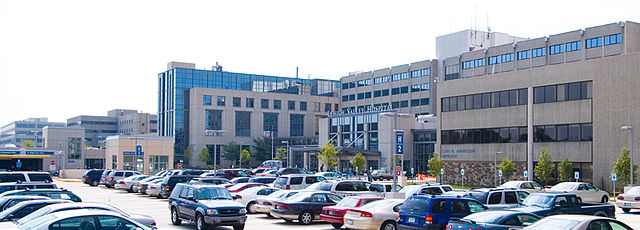Public works are a broad category of infrastructure projects, financed and procured by a government body for recreational, employment, and health and safety uses in the greater community. They include public buildings, transport infrastructure, public spaces, public services, and other, usually long-term, physical assets and facilities. Though often interchangeable with public infrastructure and public capital, public works does not necessarily carry an economic component, thereby being a broader term. Construction may be undertaken either by directly employed labour or by a private operator.
A US government poster from 1940 summarizing the Works Progress Administration's achievements
Public works in Reggio Emilia, Emilia-Romagna, Italy
Infrastructure is the set of facilities and systems that serve a country, city, or other area, and encompasses the services and facilities necessary for its economy, households and firms to function. Infrastructure is composed of public and private physical structures such as roads, railways, bridges, tunnels, water supply, sewers, electrical grids, and telecommunications. In general, infrastructure has been defined as "the physical components of interrelated systems providing commodities and services essential to enable, sustain, or enhance societal living conditions" and maintain the surrounding environment.
San Francisco Ferry Building, The Embarcadero, and the Bay Bridge at night, all examples of infrastructure
Lehigh Valley Hospital–Cedar Crest in Allentown, Pennsylvania
An Autobahn in Lehrte, near Hanover, Germany





